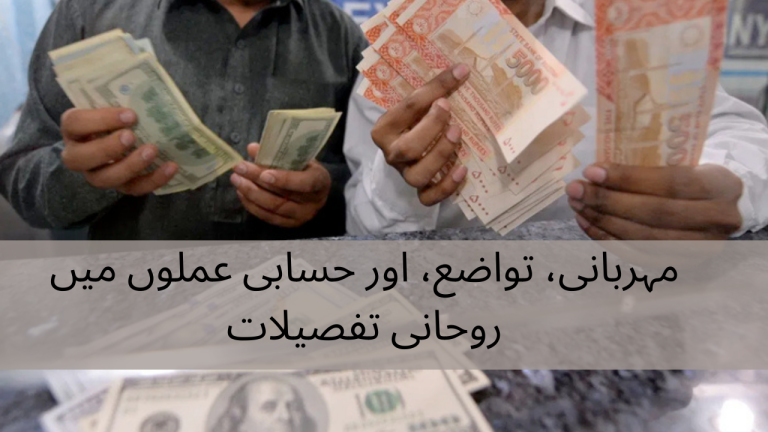The Mercy of Almighty Allah: Response to Human Intentions, Reward, and Repentance

The Mercy of Almighty Allah: Response to Human Intentions, Reward, and Repentance On the authority of son of Abbas (may Allah be pleased with them both), from the Messenger of Allah (ﷺ), among the sayings he related from his Lord (glorified and exalted be He) is that He said:
The Mercy of Almighty Allah: Response to Human Intentions, Reward, and Repentance
Allah has written down the good deeds and the bad ones. Then He explained it [by saying that] he who has intended a good deed and has not done it, Allah writes it down with Himself as a full good deed, but if he has intended it and has done it,
Allah writes it down with Himself as from ten good deeds to seven hundred times, or many times over. But if he has intended a bad deed and has not done it, Allah writes it down with Himself as a full good deed, but if he has intended it and has done it, Allah writes it down as one bad deed. It was related by al-Bukhari and Muslim.
عَنْ ابْنِ عَبَّاسٍ رَضِيَ اللَّهُ عَنْهُمَا، عَنْ النَّبِيِّ صَلَّى اللَّهُ عَلَيْهِ وَسَلَّمَ، فِيمَا يَرْوِي عَنْ رَبِّهِ عَزَّ وَجَلَّ، قَالَ: “إِنَّ اللَّهَ كَتَبَ الْحَسَنَاتِ وَالسَّيِّئَاتِ، ثُمَّ بَيَّنَ ذَلِكَ: فَمَنْ هَمَّ بِحَسَنَةٍ فَلَمْ يَعْمَلْهَا، كَتَبَهَا اللَّهُ لَهُ عِنْدَهُ حَسَنَةً كَامِلَةً، فَإِنْ هُوَ هَمَّ بِهَا فَعَمِلَهَا، كَتَبَهَا اللَّهُ لَهُ عِنْدَهُ عَشْرَ حَسَنَاتٍ، إِلَى سَبْعِمِائَةِ ضِعْفٍ، إِلَى أَضْعَافٍ كَثِيرَةٍ، وَمَنْ هَمَّ بِسَيِّئَةٍ فَلَمْ يَعْمَلْهَا، كَتَبَهَا اللَّهُ لَهُ عِنْدَهُ حَسَنَةً كَامِلَةً، فَإِنْ هُوَ هَمَّ بِهَا فَعَمِلَهَا، كَتَبَهَا اللَّهُ سَيِّئَةً وَاحِدَةً”.
رواه البخاري ومسلم
Arabic
عَنْ ابْنِ عَبَّاسٍ رَضِيَ اللَّهُ عَنْهُمَا، عَنْ النَّبِيِّ صَلَّى اللَّهُ عَلَيْهِ وَسَلَّمَ، فِيمَا يَرْوِي عَنْ رَبِّهِ عَزَّ وَجَلَّ، قَالَ: “إِنَّ اللَّهَ كَتَبَ الْحَسَنَاتِ وَالسَّيِّئَاتِ، ثُمَّ بَيَّنَ ذَلِكَ: فَمَنْ هَمَّ بِحَسَنَةٍ فَلَمْ يَعْمَلْهَا، كَتَبَهَا اللَّهُ لَهُ عِنْدَهُ حَسَنَةً كَامِلَةً، فَإِنْ هُوَ هَمَّ بِهَا فَعَمِلَهَا، كَتَبَهَا اللَّهُ لَهُ عِنْدَهُ عَشْرَ حَسَنَاتٍ، إِلَى سَبْعِمِائَةِ ضِعْفٍ، إِلَى أَضْعَافٍ كَثِيرَةٍ، وَمَنْ هَمَّ بِسَيِّئَةٍ فَلَمْ يَعْمَلْهَا، كَتَبَهَا اللَّهُ لَهُ عِنْدَهُ حَسَنَةً كَامِلَةً، فَإِنْ هُوَ هَمَّ بِهَا فَعَمِلَهَا، كَتَبَهَا اللَّهُ سَيِّئَةً وَاحِدَةً”.
Urdu
ابن عباس رضی اللہ عنہما نے روایت کی ہے کہ نبی صلی اللہ علیہ وآلہ وسلم نے اپنے رب کی طرف سے یہ بیان فرمایا: “اللہ نے حسنات اور سیئیات کو لکھ دیا، پھر اس کو بیان کر دیا: جو شخص کسی نیکی کا ارادہ کرے اور اسے عمل میں نہ لائے، اللہ تعالی نے اسے ایک مکمل نیکی لکھی ہوئی ہے، اگر وہ اسے عمل میں نہ لائے تو اللہ نے اسے اپنے پاس ایک مکمل نیکی کے طور پر لکھ لی ہے۔ اور اگر وہ اسے عمل میں لے آئے تو اللہ نے اسے دس نیکیوں تا سات سو گنا، اور بہت سی زیادہ گنا لکھ دی ہیں، اور جو شخص کسی برائی کا ارادہ کرے اور اسے عمل میں نہ لائے، اللہ نے اسے ایک مکمل نیکی لکھی ہوئی ہے، اور اگر وہ اسے عمل میں لے آئے تو اللہ نے اسے ایک سیاہی لکھ دی ہے۔”
English
Narrated by Ibn Abbas, may Allah be pleased with them both, the Prophet, peace be upon him, said, reporting from his Lord, the Mighty and Majestic: “Verily, Allah has recorded the good deeds and the bad deeds. Then He made that clear:
Whoever intends to do a good deed but does not do it, Allah records it with Himself as a complete good deed. If he intends it and does it, Allah records it with Himself as ten good deeds, up to seven hundred times, up to many times over. And if he intends to do an evil deed but does not do it, Allah records it with Himself as a complete good deed. If he intends it and does it, Allah records it as one evil deed.”
Benefits Of This Hadees
This Hadith carries several profound benefits
Mercy and Justice of Allah
- The Hadith illustrates the mercy and justice of Allah. It shows that Allah, out of His mercy, rewards the intention and effort, even if the action is not carried out. Simultaneously, it highlights the justice of Allah in holding people accountable for their evil intentions and actions.
Encouragement for Positive Intentions
- The Hadith encourages believers to have positive intentions and make efforts to perform good deeds. It emphasizes that even the intention to do good is rewarded, providing motivation for individuals to strive for goodness.
Reward for Good Intentions
- The concept that intending a good deed earns a complete reward demonstrates the generosity of Allah. It encourages believers to think positively and make sincere intentions, knowing that Allah rewards them generously.
Multiplication of Rewards
- The multiplication of rewards for a good intention that is acted upon further emphasizes Allah’s generosity. It motivates believers to go beyond mere intentions and actively engage in righteous deeds for multiplied rewards.
Divine Understanding of Human Intentions
- The Hadith underscores that Allah understands the sincere intentions of the heart. This deepens the connection between the servant and the Creator, fostering a sense of intimacy and understanding in the divine-human relationship.
Protection from Evil Actions
- The concept that an evil intention not acted upon is recorded as a good deed serves as a warning against harmful thoughts. It encourages believers to resist negative impulses, promoting self-discipline and moral integrity.
Encouragement for Repentance
- The Hadith implies that even if a person intends to commit an evil deed but refrains from it, Allah rewards them with a good deed. This provides hope for redemption and encourages repentance, emphasizing Allah’s willingness to forgive.
Teaching the Concept of Divine Recording
- The Hadith introduces the concept of divine recording, emphasizing that every intention and action is meticulously recorded by Allah. This awareness instills a sense of accountability and mindfulness in believers.
In summary, this Hadith highlights the merciful and just nature of Allah, encourages positive intentions and actions, teaches the concept of divine recording, and serves as a source of motivation and hope for believers.
Conclusion
This Hadith illuminates Allah’s merciful and just nature, rewarding sincere intentions and actions. It inspires believers to cultivate positive intentions, showcasing the divine understanding of human hearts. The multiplication of rewards for good intentions motivates active engagement in righteous deeds. Additionally,
the concept of evil intentions recorded as good deeds serves as a warning, fostering moral integrity. Ultimately, the Hadith instills a sense of divine accountability, encouragement for repentance, and hope for redemption in the hearts of believers.





